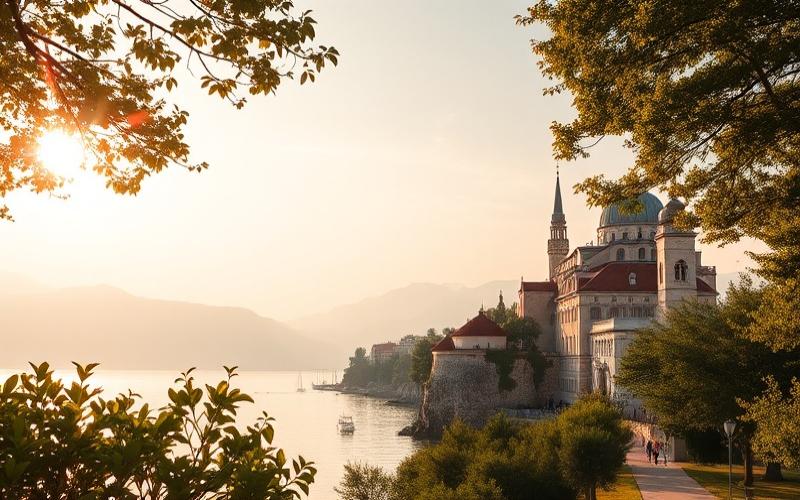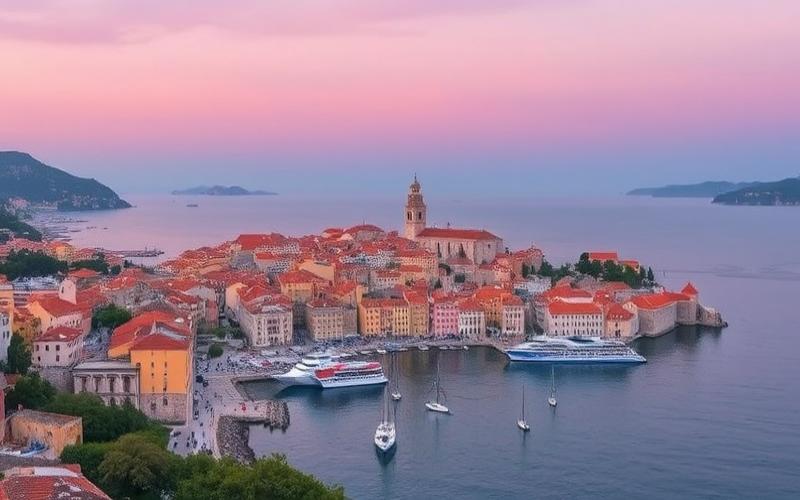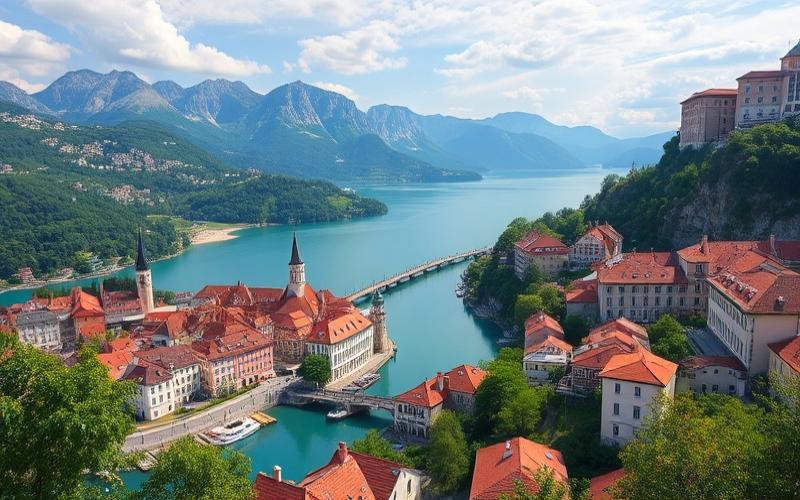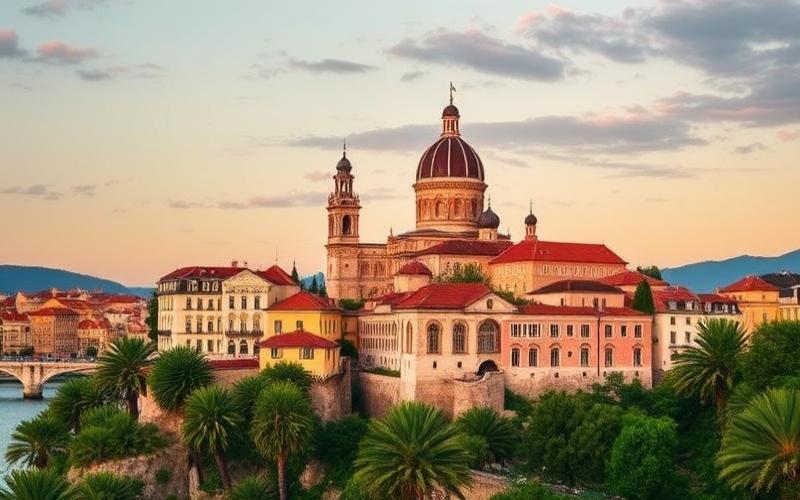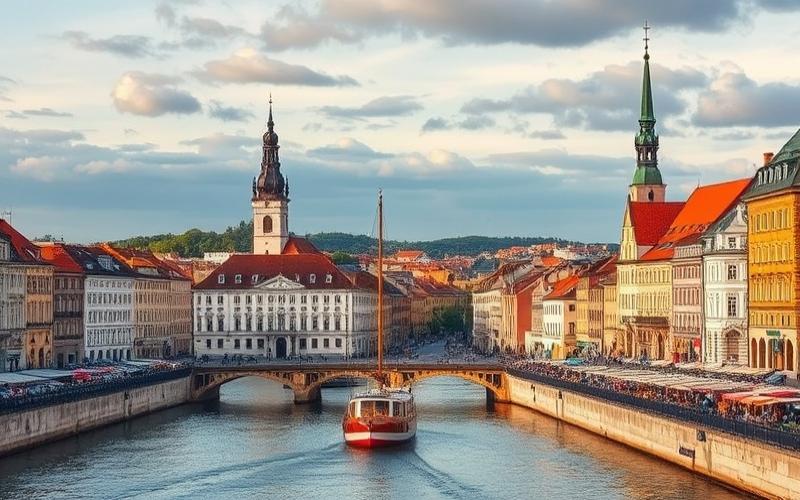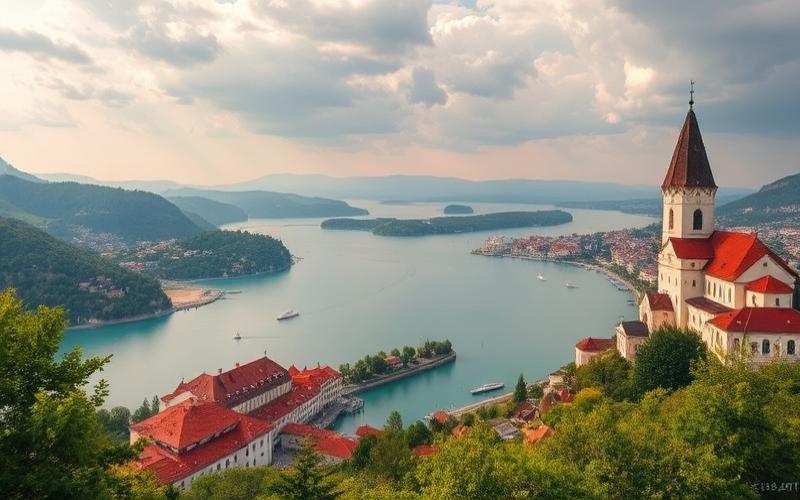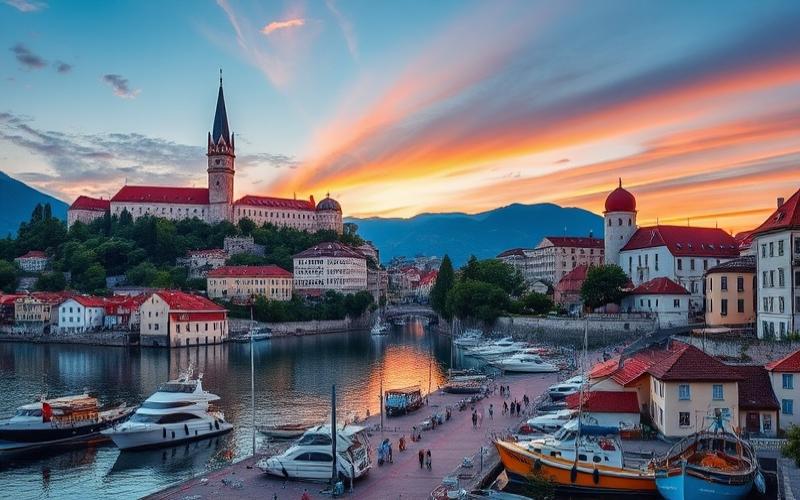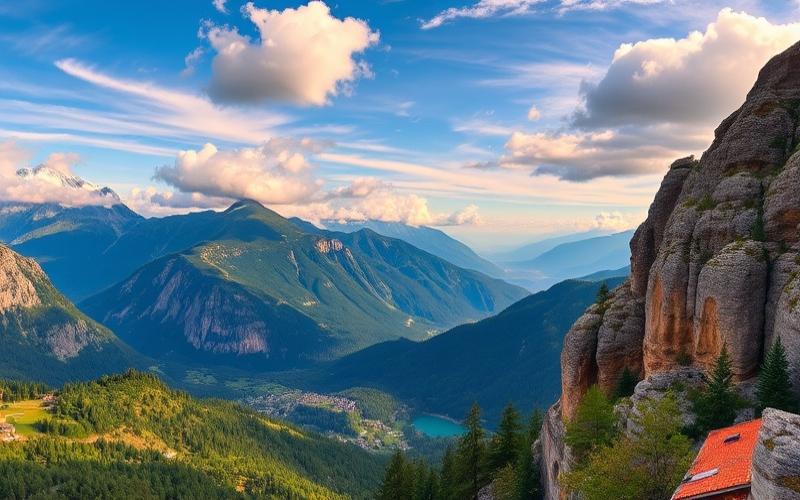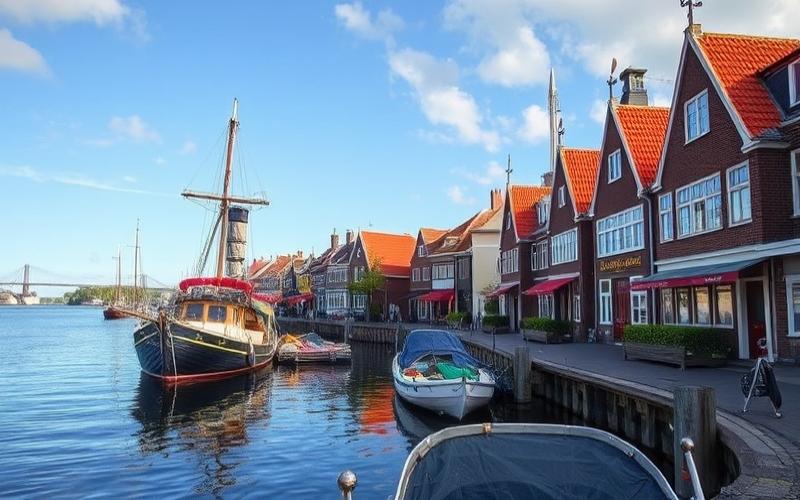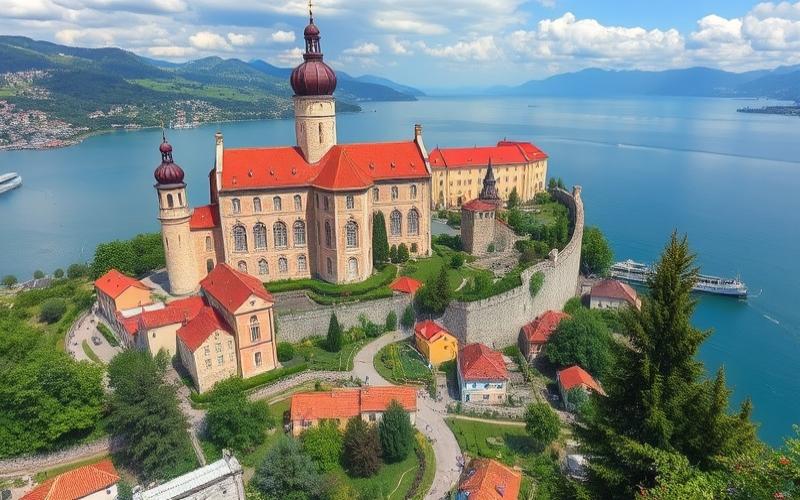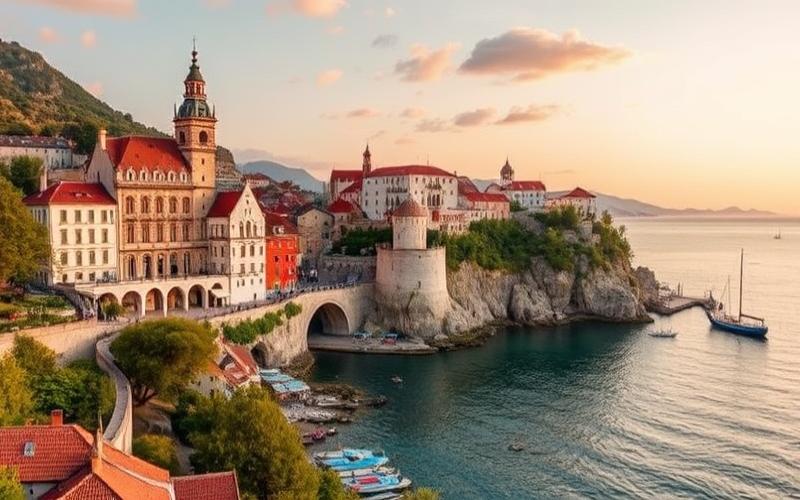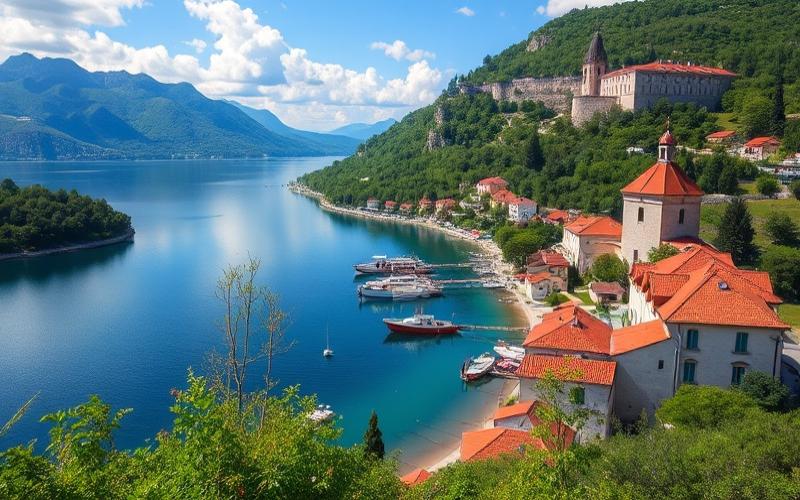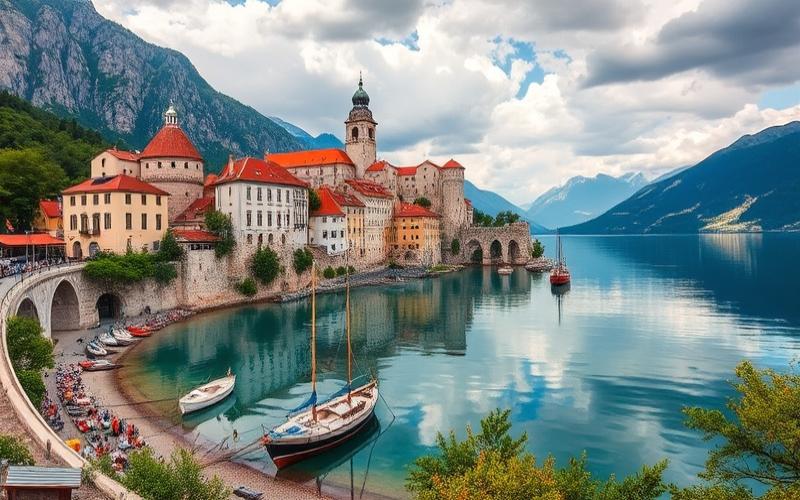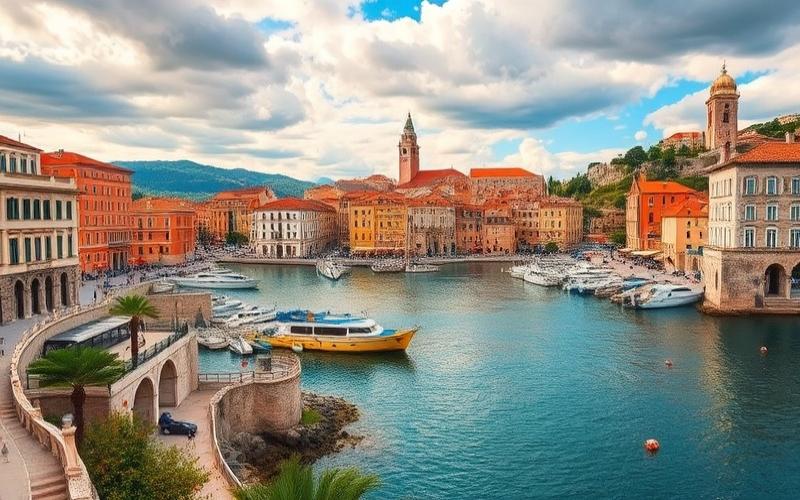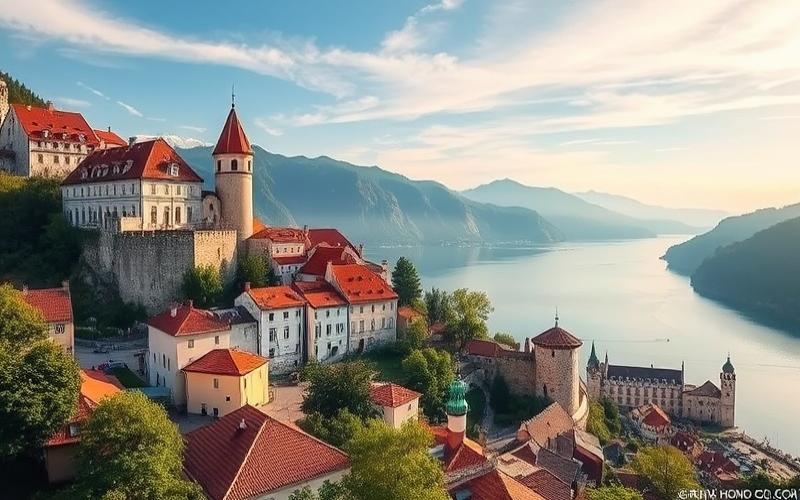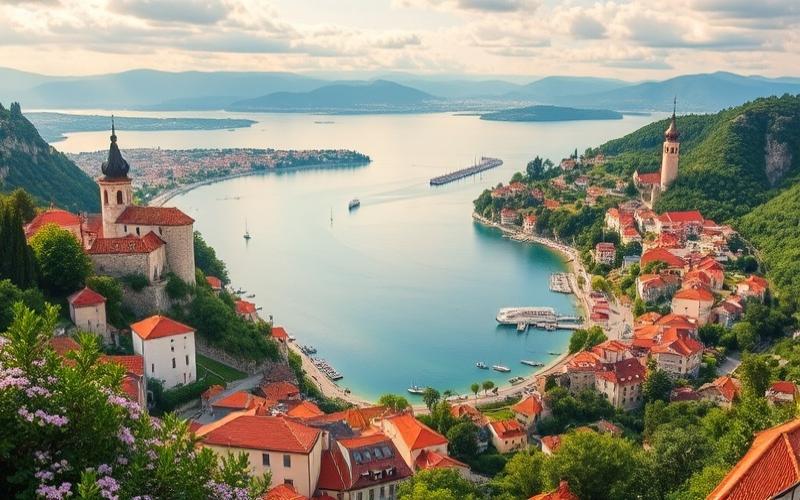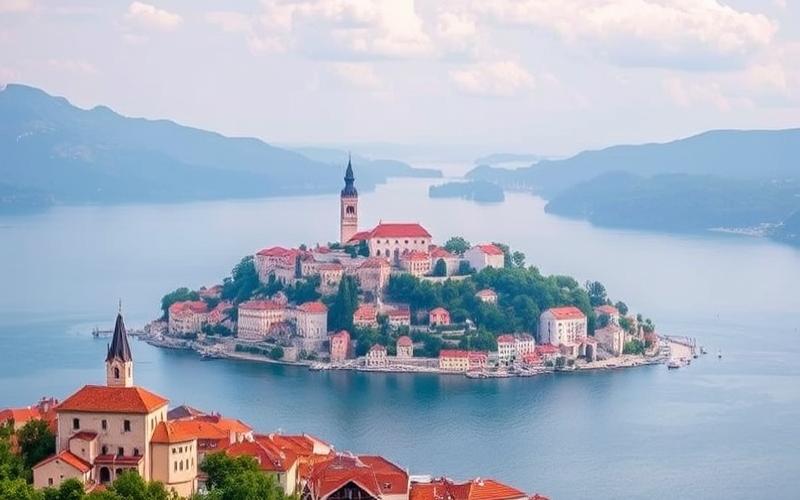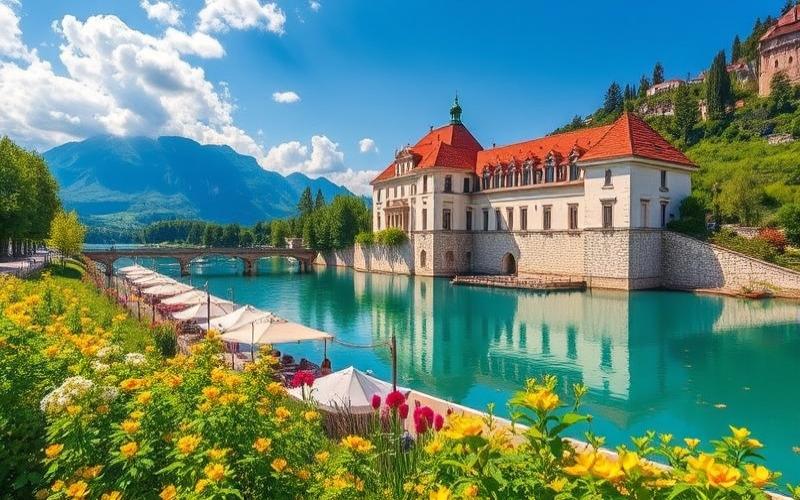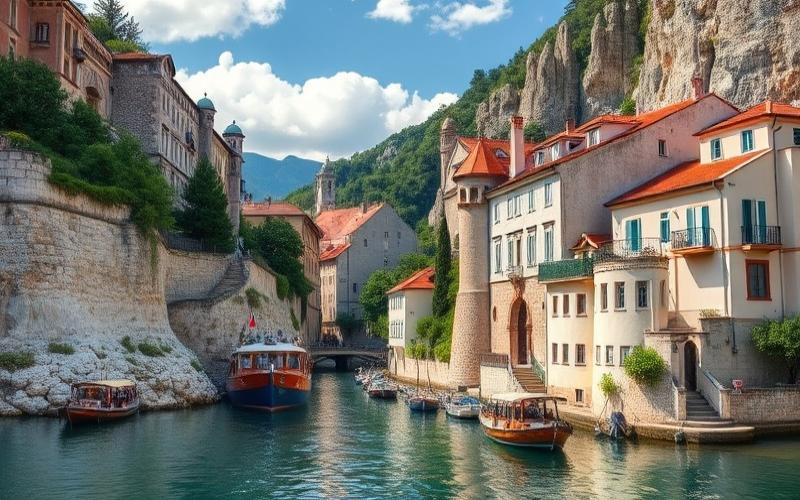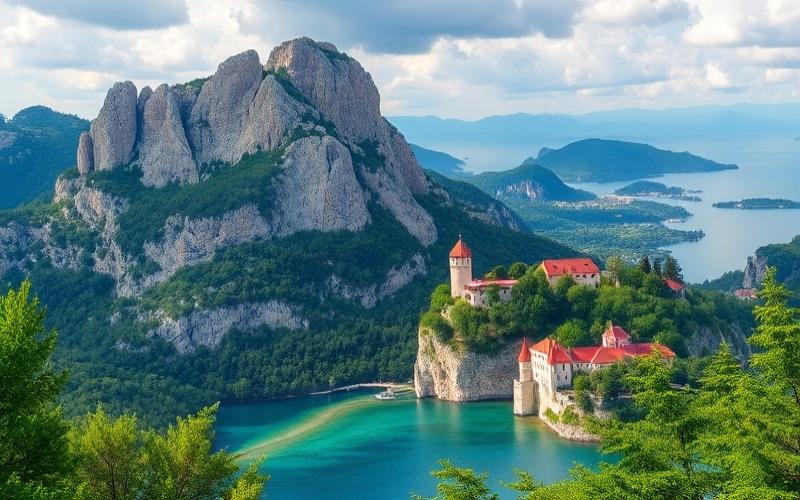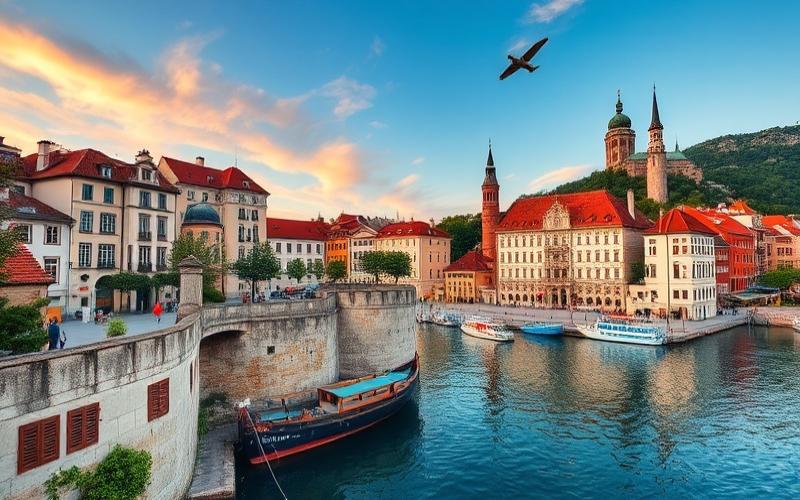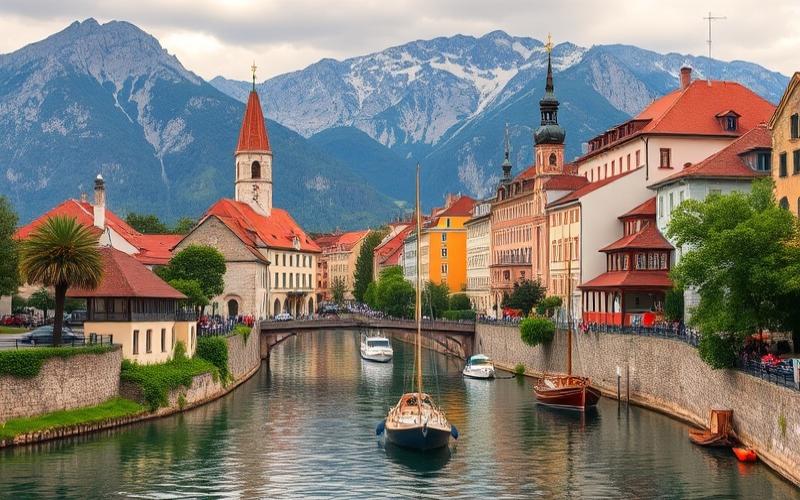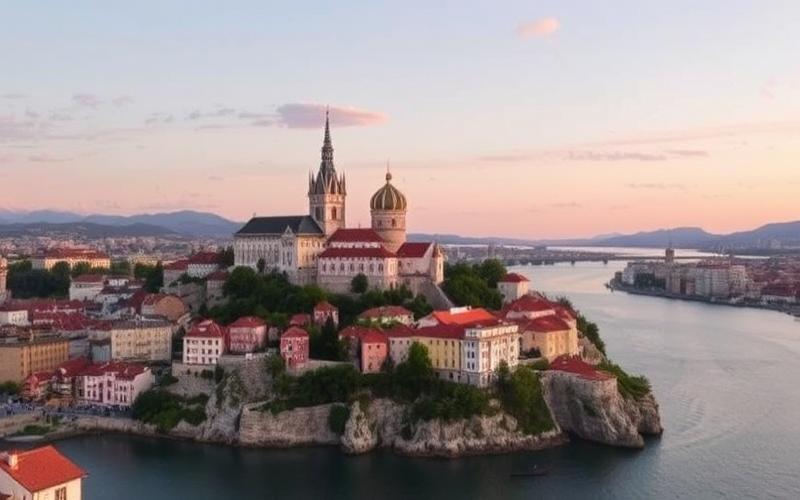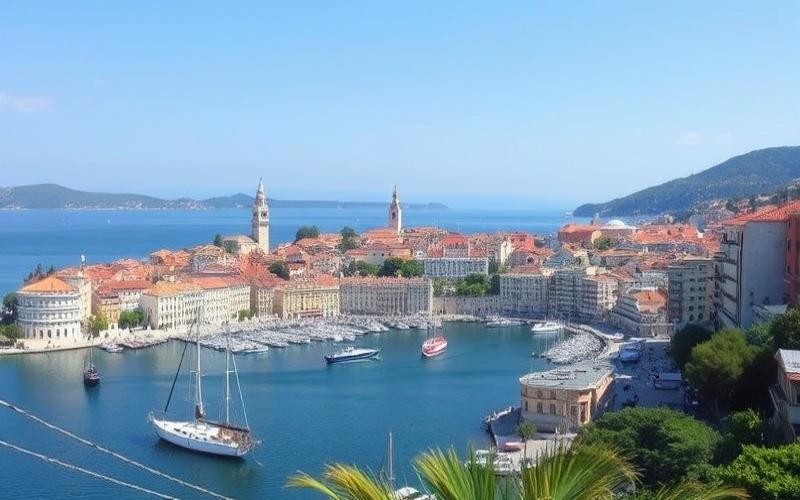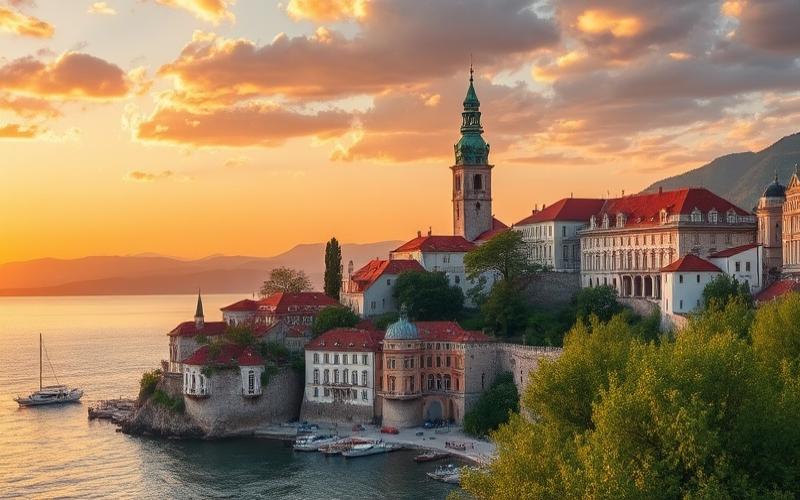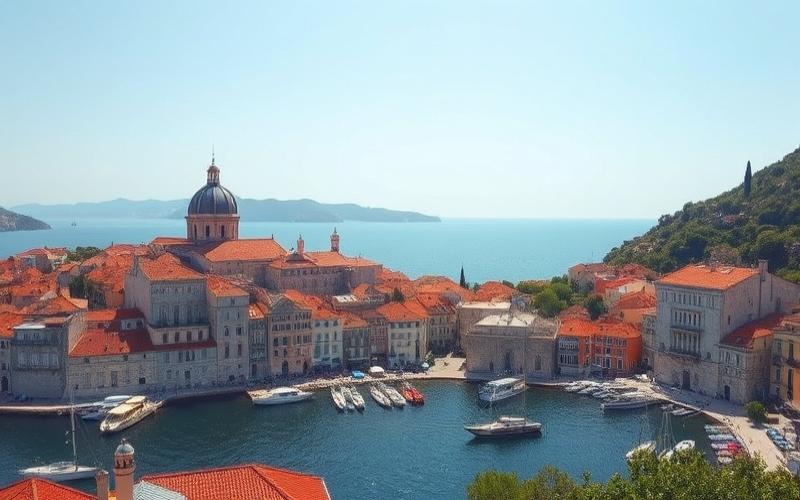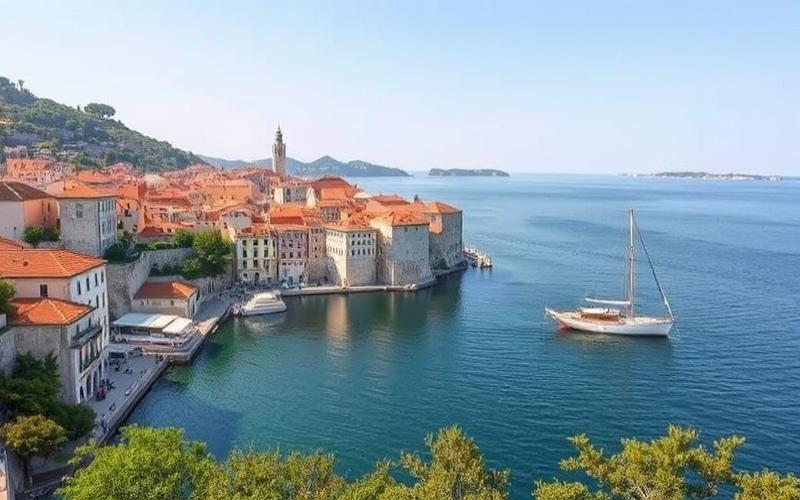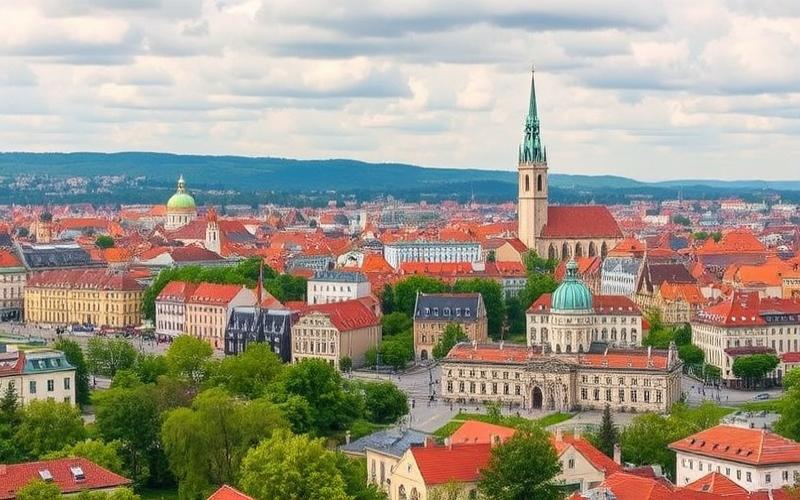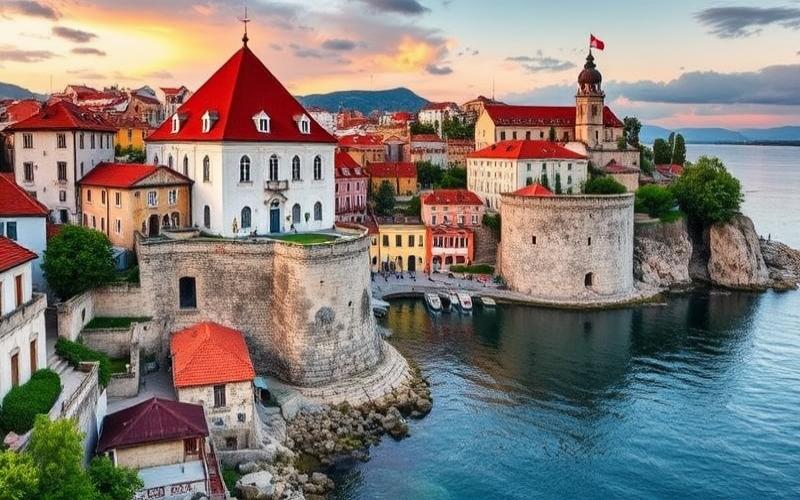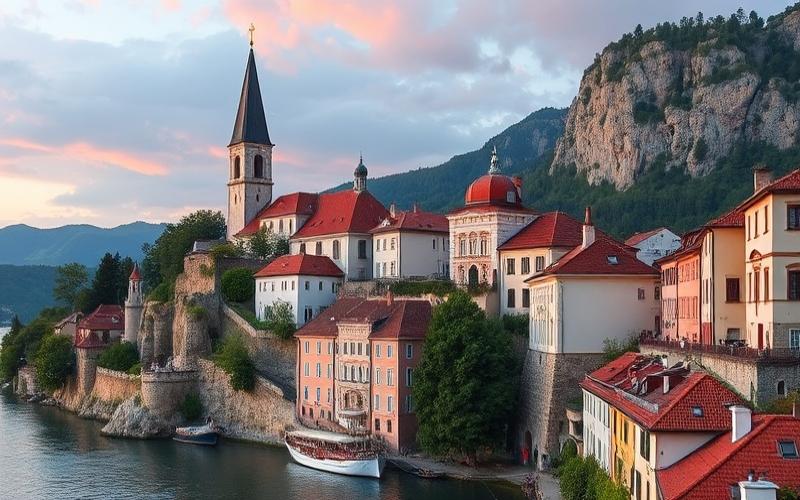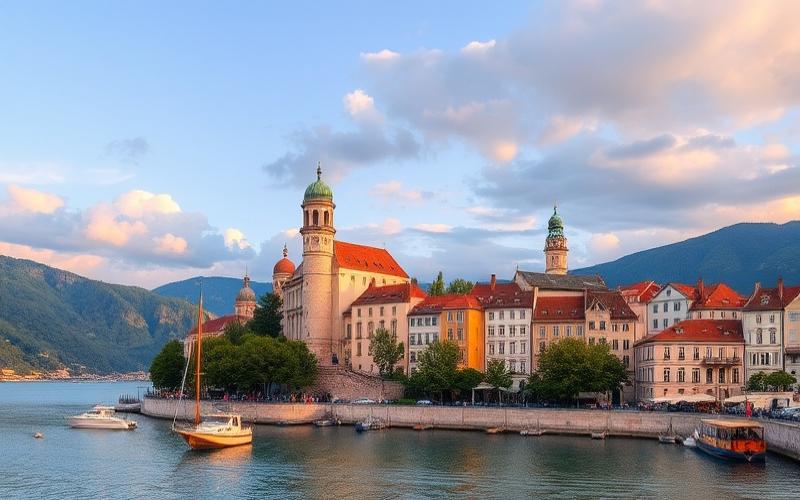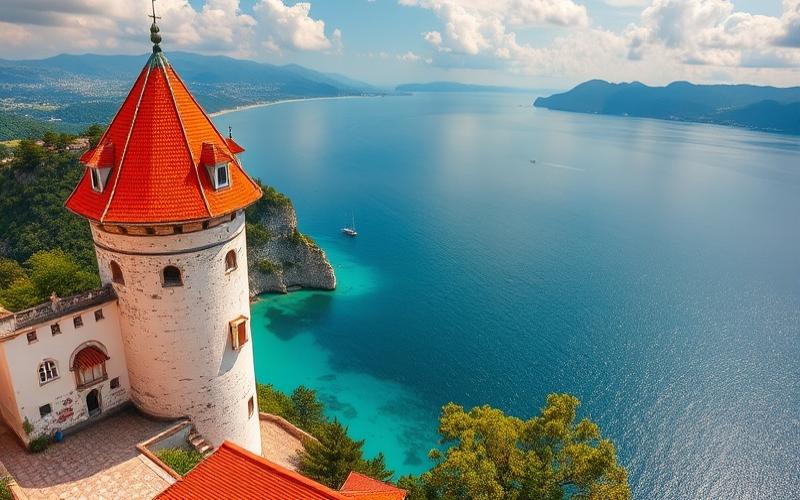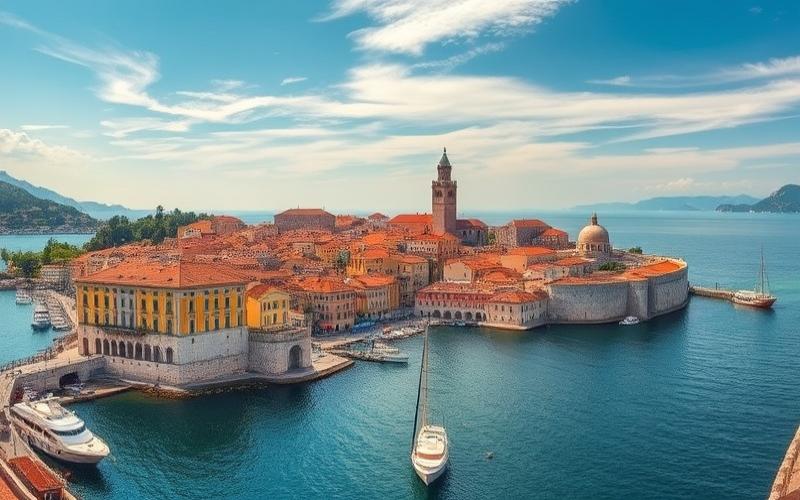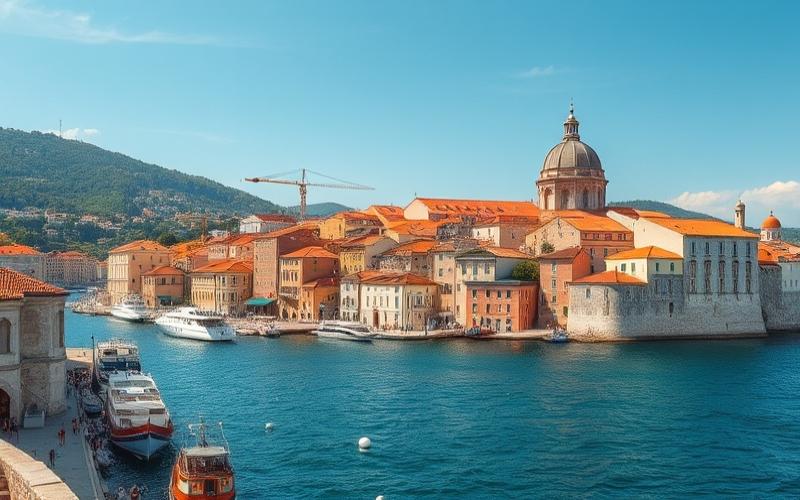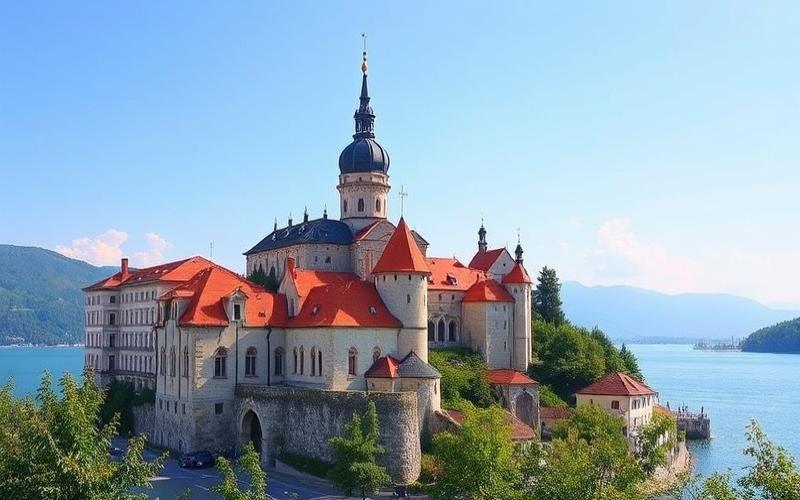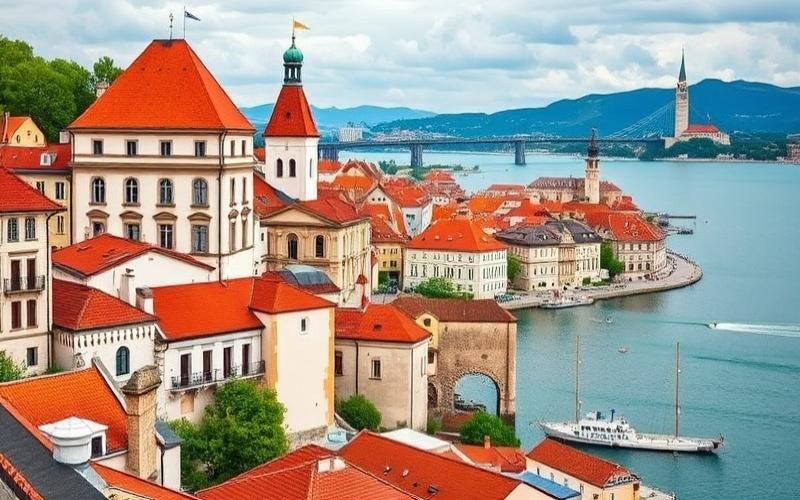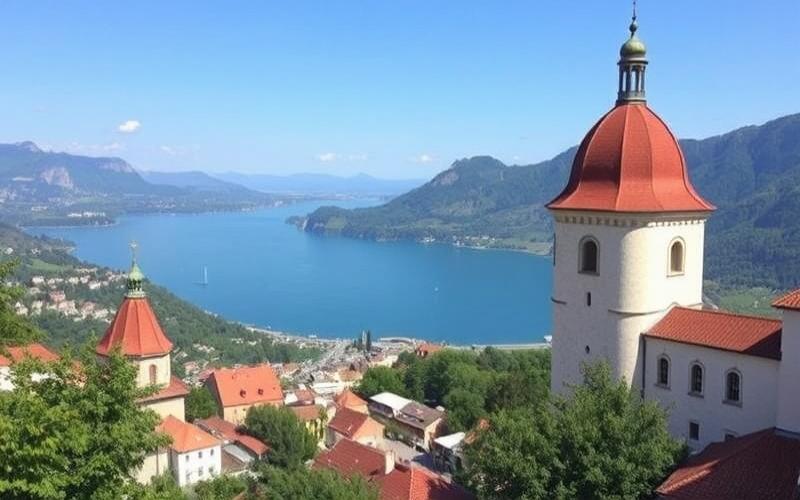
 Published on and written by Cyril Jarnias
Published on and written by Cyril Jarnias
Croatia, A Popular Tourist and Investment Destination
Nestled in the heart of Southern Europe, Croatia has become a sought-after destination for travel and tourism investment in recent years. With its stunning coastline and historic cities, it offers a multitude of opportunities in seasonal rentals.
Whether you’re an investor seeking attractive returns or an owner looking to maximize your property’s potential, Croatia presents a dynamic and promising market.
Regions with Varied Opportunities
From Dubrovnik to Split, and through the enchanting Adriatic islands, each region offers not only an idyllic setting but also significant income prospects during the peak tourist season.
Strategies for Success in Croatian Seasonal Rentals
This article will reveal the major assets of this expanding market, while highlighting current trends and winning strategies for success in this competitive environment.
Good to Know:
The peak tourist season in Croatia generally extends from June to September, with peak attendance in July and August.
Why Seasonal Rentals in Croatia Can Be a Profitable Investment
The key economic factors favoring the profitability of seasonal rentals in Croatia are as follows:
- Tourism Growth:
Croatia welcomes approximately 20 million tourists annually, with sustained growth in arrivals, particularly from Western Europe and the United States. - Increased Demand for Short-Term Accommodations:
Platforms like Airbnb are highly successful, and seasonal rentals are particularly lucrative during the summer season, when demand far exceeds available supply. - Favorable Tax Policies for Owners:
- No annual property tax.
- 0% capital gains tax after two or three years of property ownership.
- Low transfer fees (approximately 3%).
- Fees and taxes on rental income average only 10%.
- Attractive Rental Yields:
- In Dubrovnik or Split, net rental yields often reach 7 to 9% in seasonal rentals.
- Concrete examples: an apartment in Zadar purchased for €120,000 can generate €18,000 in net annual income with an 80% occupancy rate between April and November.
Most Popular and Attractive Regions:
| Region | Main Assets | Investment Trends |
|---|---|---|
| Dubrovnik | Historic city, strong international appeal, festivals | Very high demand, high yields |
| Split | Access to islands, heritage, cultural dynamism | Rising prices, strong seasonality |
| Dalmatian Islands | Preserved landscapes, luxury tourism, tranquility | Rise in luxury offerings, exclusivity |
| Zadar | Seaside town, heritage, still affordable prices | Good value for money |
Favorable Seasonality:
The main tourist season extends from May to October, but the mild climate and scheduling of cultural events (festivals, sports events, harvests, wellness tourism) help attract visitors during the off-season.
Rental demand and prices increase by 20 to 40% during peak season (July-August) compared to the low season.
Examples of Investor Success Stories:
Marie, French investor in Zadar:
Apartment rented 80% of the time between April and November, generating €18,000 in net annual income from a €120,000 investment.
Owners in Split and Dubrovnik:
Net rental yields of 7 to 9% thanks to high booking rates and strong tourist traffic.
Current Real Estate and Accommodation Market Trends:
- Sustained price increases driven by foreign demand and seasonal tourism, particularly for apartments and seaside villas.
- Rise in properties for renovation for creating tourist rentals, offering good capital gains prospects.
- New constructions attractive for their energy performance and rental stability.
- Prediction of continued price increases in 2025, but at a slower pace due to reduced accessibility for first-time buyers and possible tax increases.
- Extension of the tourist season through diversification of offerings (wellness, wine tourism, off-season events), which strengthens year-round profitability.
In summary:
Croatia, and particularly Dubrovnik, Split, and the Dalmatian Islands, offers a very favorable economic, tax, and tourism context for seasonal rentals, with attractive yields and sustained demand that diversifies throughout the seasons.
Good to Know:
Seasonal rentals in Croatia are a promising investment, mainly due to the strong increase in tourism and growing demand for short-term accommodations, particularly in sought-after regions like Dubrovnik, Split, and the Dalmatian Islands. Croatia benefits from an extended seasonality, attracting vacationers throughout the year thanks to its cultural events and pleasant climate. Additionally, favorable tax policies for owners add to this financial appeal. Many investors have already observed the profitability of seasonal rentals, such as Marcel, who saw his rental income increase by 30% in two years with his apartment in Split. Current real estate market trends, such as price stabilization and the rise of rental platforms like Airbnb, further strengthen the prospects for long-term investment profitability.
The Unexpected Benefits of Seasonal Rentals
Little-Known Advantages of Seasonal Rentals in Croatia
- Attractive Passive Income for Owners
- Strong tourist demand in destinations such as Dubrovnik and Split allows for significantly higher income compared to traditional rentals.
- Example: in Split, an apartment rented continuously can generate up to €2,580 per month, more than three times the income of a traditional long-term rental.
- The rental yield rate can reach 4% to 6% depending on location and occupancy.
- Optimization of Vacant Properties
- Periods when the property is unoccupied can be used by the owner themselves or for regular maintenance work, preserving the property’s value and functionality.
- Real estate is generally much cheaper than in France or on the French Riviera, making investment more accessible.
- Direct Contribution to the Local Economy
- Creating accommodations dedicated to tourists encourages residents to expand their homes or renovate vacant properties, thus stimulating the local real estate sector.
- Investment in these rentals supports local jobs (cleaning services, restaurants, tourist activities).
- Cultural Benefits for Travelers
List of authentic experiences offered:
- Staying with locals (“sobe” rooms) allowing complete immersion in local communities
- Participation in regional traditions: tasting locally produced olive oil or wine
- Discovery of Croatian daily life away from standardized tourist areas
| Traditional Accommodation | Seasonal Rental with Locals |
|---|---|
| Limited contact with locals | Direct encounter with Croatian families |
| Standardized offering | Personalized experiences |
| Not well-suited for atypical stays | Adaptable (small villages, islands…) |
Ecological and Social Advantages
Promotion of sustainable tourism through locally managed accommodations that limit intensive construction and preserve the existing social fabric.
More equitable distribution of tourist flows between large cities and rural villages contributing to the harmonious development of Croatian territory.
- Limitation of environmental impact through optimal use of existing properties rather than massive new constructions
- Support for maintaining small family farms (rural accommodations)
- Promotion of mutual respect between visitors and residents through a personalized approach
Key Takeaway:
Seasonal rentals in Croatia constitute a powerful economic lever for owners while offering travelers an enriched experience based on cultural authenticity and social responsibility.
Good to Know:
Seasonal rentals in Croatia offer unexpected benefits for both owners and travelers. For owners, highly sought-after cities like Dubrovnik and Split allow for generating substantial passive income by leveraging strong tourist demand, while preventing properties from remaining vacant. This choice also positively contributes to the local economy through tourism. For travelers, seasonal rentals enable authentic immersion in local communities, offering an incomparable cultural insight compared to standardized hotel experiences. Furthermore, these accommodations promote sustainable tourism, supporting ecological practices and social initiatives, while reducing the carbon footprint associated with traditional hotel complexes.
Maximizing Profits Through Effective Property Management
Using digital platforms such as Airbnb, Booking.com, or Vrbo allows reaching an international audience and optimizing the visibility of Croatian seasonal properties. These platforms offer centralized management of listings and calendars, and facilitate multilingual communication with potential tenants.
To ensure maximum occupancy and avoid double bookings, adopting a Property Management System (PMS) proves essential. This type of tool automatically synchronizes availability across all used platforms and automates certain administrative tasks (sending contracts, payment reminders), thus freeing up time to focus on customer experience.
Regular property maintenance is crucial:
- Professional cleaning between each stay
- Systematic checking of equipment (air conditioning, appliances)
- Immediate minor repairs to prevent accumulation of defects
Continuous improvement of the property—for example through furniture modernization or provision of high-end amenities (fast internet connection, private pool)—allows increasing its perceived value by the customer.
Training and effective management of local staff play a key role in perceived quality:
- Multilingual hospitality training
- Awareness of international hygiene standards
- Development of quick problem-solving skills
Practical Examples in Croatia:
| Owner | Key Strategy | Result Achieved |
|---|---|---|
| Villa Dalmatia | Investment in PMS + trained staff | Annual occupancy rate over 90% |
| Apartments Istria | Annual modernization + customer feedback | Average rating over 4.8/5 on Airbnb |
| House Dubrovnik | Targeting via international platforms | Diverse clientele outside peak season |
Synthetic List of Major Levers:
- Use at least two major digital platforms to maximize international visibility
- Adopt an automated system that centralizes all bookings
- Schedule regular technical audits and deep cleanings
- Systematically consider customer feedback to guide each improvement
- Involve local staff from recruitment in a quality approach focused on traveler experience
Proactive management combining technology, local operational excellence, and continuous adaptation to international expectations constitutes the foundation of successful seasonal rental success in Croatia today.
Good to Know:
To maximize profits in Croatian seasonal rentals, it’s crucial to leverage digital platforms like Airbnb or Booking.com to reach an international and diverse audience. A property management system is essential to avoid double bookings and maintain high occupancy rates. Regular maintenance and continuous improvement of properties, for example by renovating interior fittings or adding modern amenities, not only increase perceived value but also overall appeal to potential tenants. Effectively managing local staff, training them to guarantee an exceptional customer experience, is also essential; case studies show that owners have doubled their profits by implementing these strategies. For example, some owners in Dubrovnik saw a 30% increase in bookings after focusing on these key management aspects.
Investors in Croatian seasonal rentals must comply with a strict regulatory framework, including obtaining licenses, paying local taxes, and adhering to safety standards for rented properties.
Licenses and Administrative Obligations:
- It is mandatory to obtain accreditation and property categorization (1 to 5 star rating) from the Ministry of Tourism.
- Owners must register as professional or private landlords according to their status.
- Declaration of hosted tourists is required with local authorities.
Local Taxes and Tax Obligations:
- Income from seasonal rentals is subject to income tax, as well as various tourist taxes.
- Starting January 2025, a tax reform plans higher taxes for short-term rentals, particularly in tourist areas. The objective is to curb the massive conversion of residential properties into tourist accommodations.
- Properties rented long-term or used as primary residence for at least ten months per year benefit from specific tax exemptions.
| Type of Rental | License Required | Applicable Tax | Possible Exemption |
| Seasonal Rental | Accreditation + rating | Income tax + local tax | No |
| Long-Term Rental | Registration | Tax reductions/exemptions | Yes (if >10 months/year residence) |
Safety-Related Regulations:
- The property must meet minimum standards for equipment, hygiene, and safety (fire detectors, secure exits).
- Controls may be conducted by municipal or regional authorities to verify compliance with health and safety rules.
Regional Variability of Rules:
Exact conditions may vary according to:
- The region (Adriatic coast vs interior)
- The municipality (possible additional requirements on environment or urban planning)
Some territories impose stricter criteria regarding:
- The maximum number of accommodations allowed per neighborhood
- Access to public networks
- Environmental management
To Stay Informed:
- Regularly consult official websites of the Croatian Ministry of Tourism and relevant municipalities
- Subscribe to local legal bulletins
- Annually verify if your license needs renewal
Practical Suggestions:
Consulting a local legal advisor specialized in tourist real estate allows:
- Validating legal compliance before any investment
- Effectively anticipating any regulatory changes
- Maximizing legal security through continuous monitoring
Recapitulative List:
- Research requirements specific to each municipality before any rental purchase
- Systematically obtain accreditation, official rating, and tax declaration
- Schedule an annual verification with a local lawyer
- Use exclusively detailed written contracts for each rental
Important: Frame all administrative procedures with a professional to avoid potential sanctions or disputes.
Good to Know:
To secure your investment in Croatian seasonal rentals, it’s crucial to navigate through various local regulations, including obtaining a rental license from the regional tourist office, which is essential for legal operation. Investors must also pay local taxes and meet tax obligations that vary by region, often requiring registration with the National Tax Office. Regarding safety of properties for rent, compliance with specific standards for electrical and gas installations is mandatory. Regional and municipal regulations can differ significantly, hence the importance of regularly consulting local updates and following reliable resources. Consulting a local legal advisor is strongly recommended to navigate these complexities, ensure compliance, and maximize investment security; this professional will provide personalized support, taking into account local specifics and regulatory developments.
Disclaimer: The information provided on this website is for informational purposes only and does not constitute financial, legal, or professional advice. We encourage you to consult qualified experts before making any investment, real estate, or expatriation decisions. Although we strive to maintain up-to-date and accurate information, we do not guarantee the completeness, accuracy, or timeliness of the proposed content. As investment and expatriation involve risks, we disclaim any liability for potential losses or damages arising from the use of this site. Your use of this site confirms your acceptance of these terms and your understanding of the associated risks.

